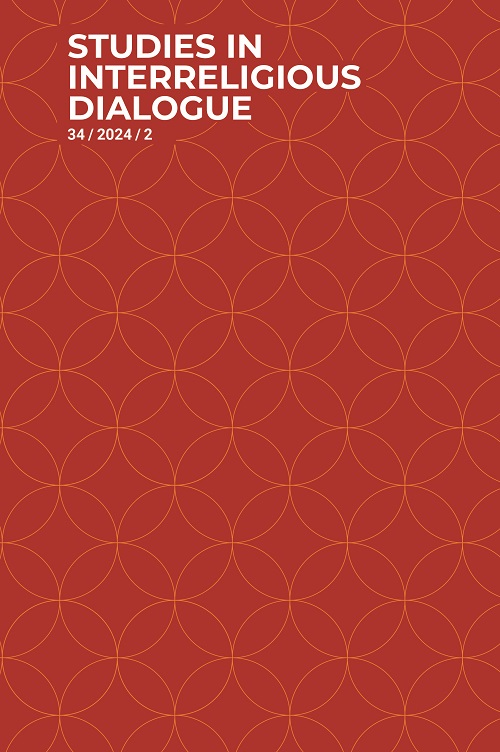 previous article in this issue previous article in this issue | next article in this issue  |

Preview first page |
Document Details : Title: And Who is My Neighbour? Subtitle: Levinas and the Commandment to Love Re-Examined Author(s): STRHAN, Anna Journal: Studies in Interreligious Dialogue Volume: 19 Issue: 2 Date: 2009 Pages: 145-166 DOI: 10.2143/SID.19.2.2044689 Abstract : This article raises the question of why the obligation to love one’s neighbour is an important consideration for thinking about the possibility of interreligious dialogue today. Both Christian and Muslim leaders have recently highlighted this commandment as a starting point in working towards a meaningful peace between these religions. I propose that Emmanuel Levinas’ presentation of obligation towards one’s neighbour in a relation of proximity in Otherwise than Being provides a provocative reinterpretation of this commandment, extending its appeal by suggesting that the demand of responsibility towards one’s neighbour and the possibility of peaceful relations is a transcendental condition of subjectivity rather than simply a commandment addressed to members of the Abrahamic religions. Levinas’ concepts of illeity, vulnerability and proximity as preconditions for society and justice challenge how we think about relations with others in education, particularly for considering the nature of interfaith and intrafaith dialogue. Levinas’s view of loving one’s neighbour is not sentimentalised. Rather, it admits the possibility of violence found in this approach to the neighbour whilst at the same time presenting the obligation of responsibility to the neighbour as entailing the possibility of peace. |
 |


